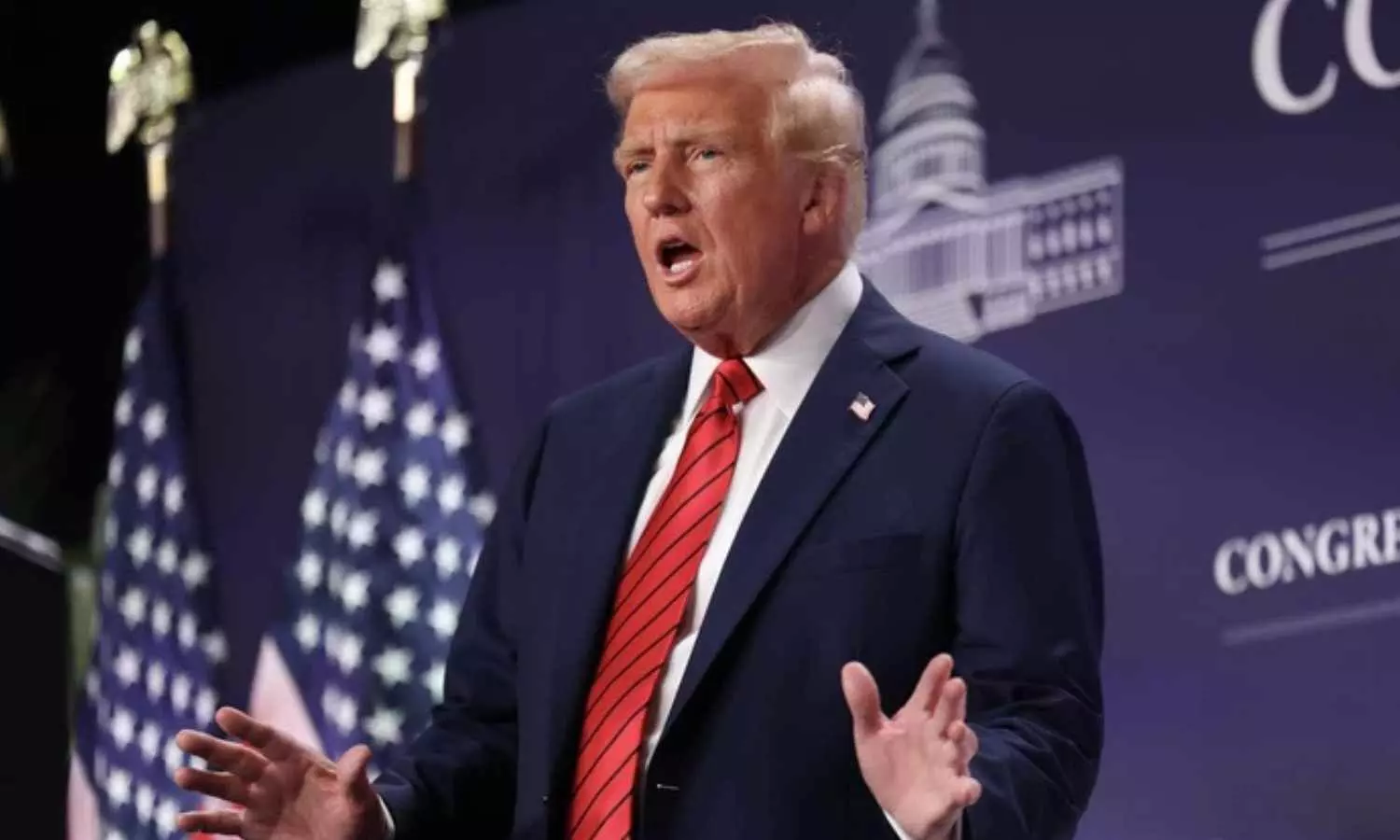India in Spotlight as Secondary Sanctions Hit Russia’s Trade
India faces potential trade and financial pressure as US-EU sanctions aim to cut Russia’s revenue streams.
image for illustrative purpose

The United States and the European Union are planning a new series of economic restrictions aimed at limiting Russia’s trade networks. The strategy focuses on secondary sanctions, which extend penalties to countries and businesses that maintain commercial ties with Russia, particularly in energy and finance. These measures represent an escalation in Western efforts to pressure Russia economically but also carry potential global trade risks.
Secondary sanctions differ from standard measures in that they target third-party entities rather than the sanctioned country’s own citizens or firms. Possible actions include blocking access to Western banking systems, restricting insurance and reinsurance for Russian oil shipments, freezing assets, and applying tariffs on nations that continue Russian imports. The objective is to reduce Russian revenue streams even where direct Western influence is limited.
Sources cited by Bloomberg indicate the EU’s proposed 19th sanctions package could affect Russian payment systems and cryptocurrency platforms, remove exemptions for state-owned oil companies like Rosneft, extend export bans on military goods, and potentially include Chinese firms supplying dual-use technology to Russia. Restrictions could also target unofficial oil carriers and reinsurance arrangements. Implementation requires unanimous consent from all 27 EU member states, which remains uncertain.
US Treasury Secretary Scott Bessent has said Russia’s economy could collapse if the US and EU enforce comprehensive secondary sanctions on countries importing Russian oil. Former President Donald Trump has stated he is ready to escalate economic pressure to a “second stage,” contingent on EU cooperation.
EU member states, however, show divisions. Hungary and Slovakia, dependent on Russian energy imports, are expected to resist measures that threaten their energy supply. Some EU nations continue to import Russian liquefied natural gas, highlighting inconsistencies within the bloc’s policies. European Commissioner for Energy Dan Jannik Jorgensen has outlined a plan to reduce Russian fossil fuel dependence by 2027, but progress varies among members.
India has become a major buyer of Russian crude, refining and exporting part of it to global markets. While New Delhi presents this trade as aligned with national economic priorities, the US views it as support for Russia’s war operations. In response, the Trump administration imposed a cumulative 50% tariff on Indian imports to the US as of August 27, signaling the possibility of further measures if India continues purchasing Russian oil. This step adds tension to US-India strategic and defence relations.
The EU faces a challenge with China, Russia’s largest energy customer. Past sanctions targeted only two smaller Chinese banks for assisting Russian trade, suggesting caution in confronting Beijing. Current discussions may broaden restrictions to other Chinese companies connected to Russia’s military-industrial supply chain, but resistance from EU nations reliant on Chinese raw materials complicates any unified approach.
Critics point out inconsistencies in EU policy, noting ongoing Russian energy purchases by some member states. This undercuts the message that trading with Russia is destabilising. The EU’s cautious stance toward India, despite US tariffs, reflects concerns about maintaining trade and diplomatic ties, including negotiations on a potential EU-India trade agreement.
For India, continuing Russian imports secures energy supply and stabilizes domestic costs, but the risk of US or EU penalties may affect trade relations and access to financial networks. Companies may face increased scrutiny and legal complications when dealing with Western partners. To mitigate risk, India might accelerate energy diversification, seek alternative suppliers, or explore indirect import routes.
The US and EU aim to pressure Russia by targeting countries that support its trade network. While the approach could restrict Russian revenues, it introduces diplomatic and economic complexities. For India, careful balancing between energy security and relations with Western nations will be required in the months ahead as sanctions evolve and global economic pressures increase.

